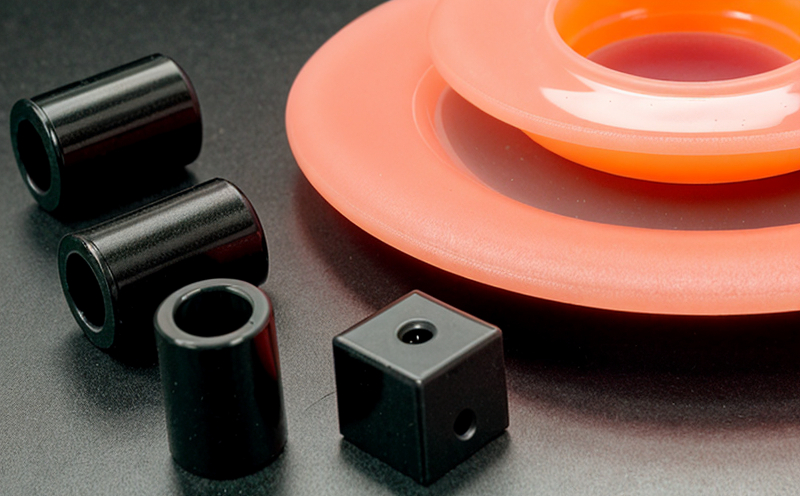ASTM D3679 Weather Resistance Testing of Outdoor Plastic Leisure Products
The ASTM D3679 standard is specifically designed to evaluate the weather resistance of outdoor plastic products used in sports and leisure applications. This service ensures that materials used in these products can withstand environmental factors such as ultraviolet (UV) radiation, moisture, temperature fluctuations, and mechanical stress over extended periods. The primary objective is to ensure product durability, safety, and performance under real-world conditions.
ASTM D3679 involves exposing samples of outdoor plastic leisure products to a combination of artificial weathering techniques that mimic the effects of natural sunlight, rain, dew, high humidity, temperature cycling, and atmospheric pollutants. This process helps predict how long a product will remain functional in its intended environment.
The testing procedure typically includes several steps: sample preparation, conditioning, exposure to various environmental conditions, inspection for color change, loss of tensile strength, cracking, or other signs of degradation, and finally, reporting the results. Compliance with ASTM D3679 is crucial for manufacturers aiming to meet industry standards and ensure customer satisfaction.
The service covers a wide range of outdoor plastic leisure products such as playground equipment, garden furniture, sports gear, and recreational vehicles. By adhering to this standard, manufacturers can enhance the longevity and reliability of their products, thereby reducing maintenance costs and improving market reputation.
- Sample Preparation: Specimens must be cut from the product in a manner that represents the intended use and environment. Samples are conditioned at room temperature for 24 hours before testing to ensure they are free of moisture or contamination.
- Environmental Exposure: Samples are exposed to UV radiation using xenon arc lamps, which simulate the effects of sunlight. They may also be subjected to cycles of temperature and humidity to mimic daily weather changes in different climates.
- Inspection and Reporting: After exposure, samples undergo detailed inspection for any signs of degradation. Results are documented according to ASTM D3679 criteria, providing a comprehensive report on the product’s performance under simulated environmental conditions.
This service is essential for companies operating in sectors such as outdoor furniture, playground equipment manufacturing, and sports goods production. It ensures that products meet global standards of quality and reliability, enhancing consumer trust and satisfaction.
Quality and Reliability Assurance
The ASTM D3679 testing process is part of a broader quality assurance strategy aimed at ensuring that outdoor plastic leisure products meet stringent standards for durability, safety, and performance. By adhering to this standard, manufacturers can enhance the reliability of their products, reducing maintenance costs and improving customer satisfaction.
Quality control begins with careful sample preparation, ensuring that specimens accurately represent the intended use and environmental conditions. The exposure phase is critical, as it simulates real-world weather conditions using artificial means. Inspection following exposure allows for detailed evaluation of any signs of degradation, providing valuable insights into material performance.
- Sample Preparation: Specimens are cut from the product in a manner that reflects its intended use and environment. Samples undergo conditioning to ensure they are free of moisture or contamination before testing.
- Exposure: Samples are exposed to simulated sunlight using xenon arc lamps, temperature changes, and humidity cycles to replicate real-world conditions.
- Inspection: After exposure, samples undergo detailed inspection for signs of degradation such as color change, loss of tensile strength, or cracking. Results are documented according to ASTM D3679 criteria.
International Acceptance and Recognition
The ASTM D3679 standard is widely recognized in the global market for its stringent requirements and accuracy. Compliance with this standard ensures that outdoor plastic leisure products meet international standards of quality and reliability, enhancing consumer trust.
This service is particularly valuable for companies operating in sectors such as outdoor furniture manufacturing, playground equipment production, and sports goods development. By adhering to ASTM D3679, manufacturers can ensure their products are durable, safe, and reliable under real-world conditions.
The standard has been adopted by numerous international organizations and is often required for product certification. Its acceptance in the global market demonstrates a commitment to quality and reliability, which is essential for maintaining a competitive edge in the industry.
Environmental and Sustainability Contributions
The ASTM D3679 testing process plays a crucial role in promoting sustainability by ensuring that outdoor plastic leisure products are durable and reliable, reducing the need for frequent replacements. This contributes to environmental protection by minimizing waste and resource consumption.
By adhering to this standard, manufacturers can enhance the longevity of their products, thereby reducing maintenance costs and improving customer satisfaction. This not only benefits the environment but also supports long-term business sustainability.
The use of weather resistance testing ensures that materials used in outdoor plastic leisure products are capable of withstanding harsh environmental conditions over extended periods. This helps to reduce the overall carbon footprint associated with product manufacturing, transportation, and disposal.





